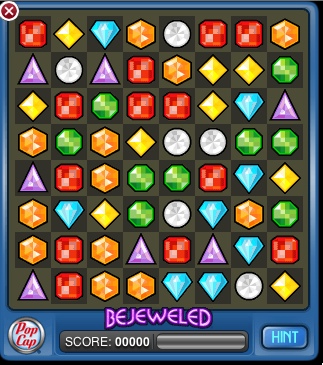 As Bob Dylan once wrote, “The times they are a-changin'” and id Software may be ready to change with these times. They’re talking at Quake Con about both DOOM 4 and their next title Rage (a first person shooter car driving game) both utilizing the same engine, the Tech 5 engine, and being developed simultaneously.
As Bob Dylan once wrote, “The times they are a-changin'” and id Software may be ready to change with these times. They’re talking at Quake Con about both DOOM 4 and their next title Rage (a first person shooter car driving game) both utilizing the same engine, the Tech 5 engine, and being developed simultaneously.
Now, this doesn’t mean you’ll have dual release games but it shows that id Software is ready to work on more than a single project at the same time, a big step for them. Although they’re usually working a big engine while finishing up a title to run on such an engine, they’ve got two titles in the works. This is very unlike the little FPS company but it shows they’re ready to meet the challenge of a larger industry.
When the original DOOM arrived there was nothing to compete against them and through the years and into Quake their competition was light years behind. Developers like Epic Games, Bungie and other first-person-shooter genre developers have proven themselves in the industry with many titles and sequels while id releases, seemingly, one game every five years.
For a company with only one or two franchise titles they do take a long time to release another game. This may be due to their engine licensing, no longer under the “Quake” engine name and sticking with its own independant naming convention like ID Tech 4 and ID Tech 5, they’re showing us the company is about engine design seperate from any demos or game prototypes they provide to show off the engine.
To many gamers DOOM 3 was more of a prototype to show people how far graphics have advanced in the last twenty years. Many folks were excited to play but grew bored when they realized it was very much like DOOM 2 but with a graphic revamp. Nostalgia only goes so far before you realize the story and depth behind games like Half-Life, Unreal and Halo have far exceeded a extreme graphical FPS gaming.
It’s time for id to grow from their roots and expand into many game genre’s and build out new independent properties (like Rage) to show the industry they’re not just a one-hit wonder with a huge fan base.
But, you can’t argue with a huge fan base. They’ve got a full conference to show off their stuff, not even Electronic Arts has that!
(Thanks, 1up)

 Congratulations to PopCap for showing why casual games will always be a viable market. Let’s put this in perspective, investors believe GTA IV will push 13-million sales by the end of 2008 and, as of January 2008, Halo 3 had sold 8 million copies. PopCap’s little casual game has hit 25 million units sold, that’s fairly impressive considering these blockbuster titles haven’t achieved such numbers.
Congratulations to PopCap for showing why casual games will always be a viable market. Let’s put this in perspective, investors believe GTA IV will push 13-million sales by the end of 2008 and, as of January 2008, Halo 3 had sold 8 million copies. PopCap’s little casual game has hit 25 million units sold, that’s fairly impressive considering these blockbuster titles haven’t achieved such numbers.
0 thoughts on “ID Software, Not Just One Game Anymore”